Life
-
 Brain
BrainLess screentime linked to better memory, learning in kids
Kids ages eight to 11 spend an average of 3.6 hours a day on screens, a new study shows. But the best thinking scores come from kids who average fewer than two hours a day of screen time.
-
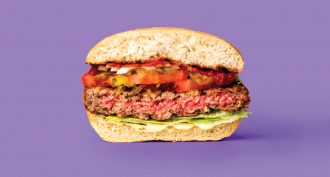 Life
LifeDesigning tomorrow’s burger
Many people enjoy biting into a juicy hamburger. But getting it to the table can be hard on the environment. That's why scientists are at work developing new forms of beef and other meats, ones that don't require slaughtering animals.
By Susan Milius -
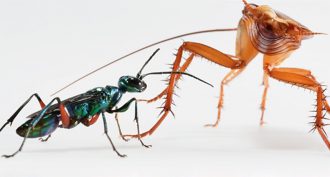 Animals
AnimalsHere’s how cockroaches fight off zombie-makers
Stand tall. Kick, kick and kick some more. Scientists observed these successful tactics among some study subjects that avoided becoming true zombies.
By Susan Milius -
 Microbes
MicrobesBacteria and bugs will save us from the zombie apocalypse
Don’t fear the undead. Here’s how the body’s cells, microbes and insects will eat a zombie before it ever goes looking for brains.
-
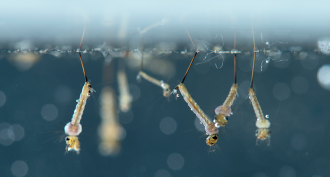 Environment
EnvironmentMicroplastics take flight in the bellies of mosquitoes
In polluted water, mosquito larvae may eat microplastic — and it will stay in their bodies as they grow. That might pose risks to skeeter-eating birds.
-
 Health & Medicine
Health & MedicineScientists Say: Parasite
Lots of organisms live in pairs, benefitting from each other. But when one organism benefits while the other suffers? That first organism is a parasite.
-
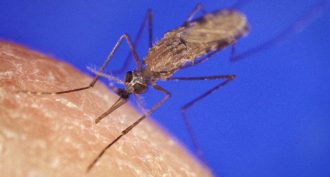 Genetics
GeneticsGene editing wiped out a population of mosquitoes in lab tests
For the first time, a gene drive caused a population crash of mosquitoes. Such gene editing could drive the malaria-carrying insects to extinction.
-
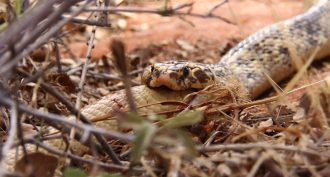 Animals
AnimalsHow Hannibal the cannibal led to a discovery about cobra diet
How a snake named Hannibal led to a discovery about cobra cannibalism
-
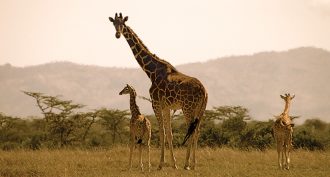 Animals
AnimalsGiraffes inherit their spots from mom
Africa’s tallest creatures inherit their characteristic patterns of spots from their mothers, a new study finds.
-
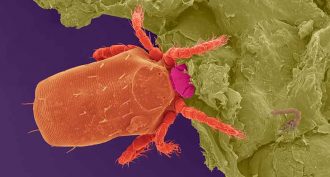 Health & Medicine
Health & MedicineChigger ‘bites’ may trigger an allergy to red meat
Some people develop a food allergy to red meat, and researchers suspect chiggers bites are to blame.
-
 Ecosystems
EcosystemsScientists Say: Understory
A forest isn’t made just out of the tallest trees. Shorter trees and shrubs thrive in their shade. This layer is called the understory.
-
 Health & Medicine
Health & MedicineTeens’ cell phone use linked to memory problems
A new study suggests teens who get more exposure to cell-phone radiation — and hold their phones up to their right ear — do worse on one type of memory test.